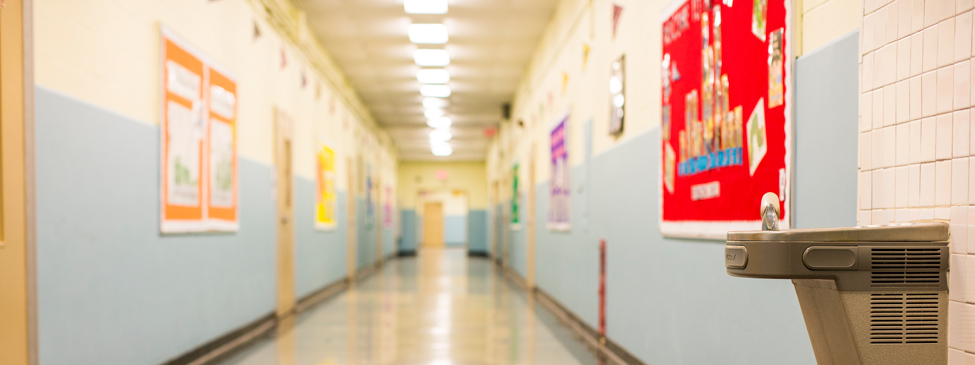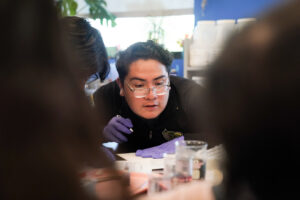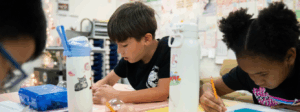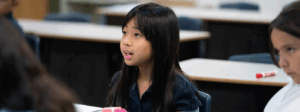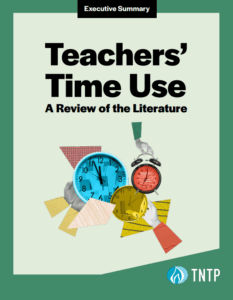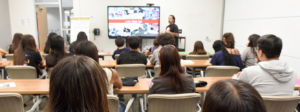Recently, several of my TNTP colleagues shared how they decide where to send their kids to school. Although my son is only eight months old, my own list of things to consider when it comes time to finding a pre-school looks similar: a rich and engaging curriculum, small class sizes, challenging instruction. But I’m a Muslim-American mom. The realities of the climate we’re living with today mean my top priority is finding a school where my son—and his religion—will be accepted, not attacked.
Although political pundits and the media have been painting Muslims as an enemy for well over 30 years, the past several months have taken a turn for the worse. Two candidates for the highest office in our land have proposed banning Muslims from entering the country and increasing police presence in our neighborhoods. Last month, following a horrible attack by ISIS in Brussels, the internet went rampant with a #StopIslam hashtag. Some used it to call for the abolition of my religion altogether.
When I talk to Muslim friends and family members, our conversation tends to focus on our children. We share worries about how our children will be perceived based on their appearance or beliefs. We worry about whether or not their resumes will be overlooked because they have names like Mohammad and Ahmed. When I talk to Muslim kids in my community who attend public school, they rattle off tales about bullying from classmates, covert bigotry from textbooks and teachers, and worse, a sense of anxiety for simply existing.
As a mother, I find myself also agonizing over how much my son’s sense of self will be affected depending on where he goes to school. After encountering people who suggest his religion is hateful, how will he respond? What will that make him think about his identity and what it means to be both an American and a Muslim?
Ironically, my parents came to the United States 40 years ago believing they were coming to a country where their family would be safe to practice their religion, receive a higher education, and be successful and engaged citizens. The America they immigrated to was very different from the Pakistan they left—a place where being from our religious sect is a liability, particularly for those with higher degrees like doctors, lawyers, and professors.
My parents came wanting the same things for their kids most immigrants hope for: the right to safety, education, and careers. Unfortunately, the current public discourse around Muslims, Mexicans, and many other disenfranchised people in this country makes me wonder if we are moving further away from those ideals.
At TNTP, my work is focused on helping teachers and schools create equitable, inclusive cultures. I do this because I want public school to be an emotionally stable, affirming experience for every kid, not just my own. But even as someone who is invested in this goal, I can’t say I believe it is a reality yet. As a Muslim parent, I simply have to swallow the dissonance I feel between my work life and the personal choices I must make for my family.
Thankfully, I’m incredibly blessed and privileged to have multiple options to consider for my son’s education. Right now we're leaning toward a homeschool collective or a private Islamic school so he'll have a support system and role models who look like him.
But even so, all I can think about are parents who don’t have these options available to them. What choices are they confronted with, and how can we help ensure our schools don’t mimic the increasingly loud and damaging discourse outside their walls?
One step would be to share powerful resources that parents and teachers can tap into, like a literacy curriculum that integrates anti-racist social justice content. There are also groups like the Coalition of Schools Educating Boys of Color, which are laying the groundwork for a public school system where diversity is valued and affirmed. A great children’s blog provides kids with language they can use to advocate for themselves and others in their community.
These resources are a good start. But ultimately, real change won’t be possible until we, as a nation, truly believe that every child—regardless of what zip code or country they were born in, the color of their skin, or the religion they practice—deserves the opportunity to learn in classrooms that are both challenging and safe.
